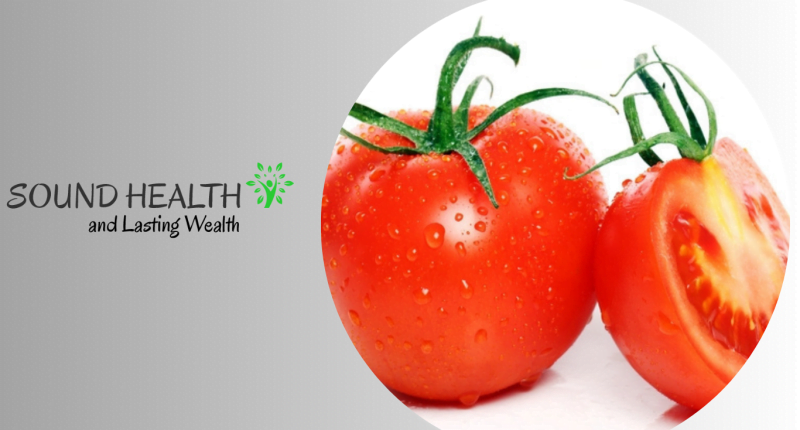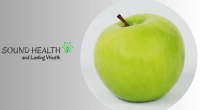18 Best Foods that Impede Prostate Enlargement In Men – Prostate enlargement is a common condition among older men. It occurs when the prostate gland grows and puts pressure on the urethra, which can cause urinary problems. The symptoms of prostate enlargement include difficulty urinating, a weak urine stream, and frequent urination, especially at night. While there are medical treatments available, such as surgery or medication, making dietary changes can also help impede the growth of the prostate gland and alleviate the symptoms of prostate enlargement.
18 Foods that can help prevent Prostate Enlargement
Tomatoes
Tomatoes are high in lycopene, which is an antioxidant that can help prevent prostate cancer and reduce the risk of prostate enlargement. Lycopene is more easily absorbed by the body when it is cooked, so cooked tomato products such as tomato sauce, tomato paste, and tomato soup are particularly beneficial. Tomatoes are also filled with vitamins A and C, as well as potassium and other minerals that can help boost immunity and fight inflammation. Try adding some tomato sauce or diced tomatoes to your salads or blending them into smoothies for an extra dose of prostate-friendly nutrition!
Spinach
Spinach is a great source of antioxidants, which help to reduce inflammation and protect the body from free radical damage. It is also packed with essential vitamins and minerals like vitamin A, C, E, K and magnesium. Its high content of carotenoids, such as lutein and zeaxanthin, can help reduce the risk of developing prostate cancer. Eating spinach regularly can also help keep your hormones in balance, which is important for overall prostate health.
Green tea
Green tea contains compounds called catechins that have been shown to reduce the risk of prostate cancer and impede the growth of the prostate gland. Drinking green tea regularly can also help alleviate the symptoms of prostate enlargement.
Turmeric
Turmeric is a spice that contains a compound called curcumin. Curcumin has been shown to impede the growth of prostate cancer cells and reduce the risk of prostate enlargement. Adding turmeric to soups, stews, or stir-fries can provide a flavorful and healthy boost to your prostate health.
Broccoli
Broccoli is a cruciferous vegetable that contains a compound called sulforaphane. Sulforaphane has been shown to impede the growth of prostate cancer cells and reduce the risk of prostate enlargement. Eating broccoli regularly can also help reduce inflammation in the body, which can contribute to prostate enlargement. For maximum benefit, try steaming or lightly boiling your broccoli instead of microwaving or stir-frying it.
Fish
Eating fish at least twice a week is linked to reducing the risk of prostate cancer. Fish is high in omega-3 fatty acids, which have anti-inflammatory properties and can help to reduce the risk of developing prostate cancer. Salmon, tuna, mackerel and sardines are all good sources of omega-3s.
Berries
Berries such as blueberries, strawberries, and raspberries are high in antioxidants that can help reduce inflammation in the body and reduce the risk of prostate enlargement. Eating a variety of berries regularly can provide a healthy boost to your overall health and prostate health.
Carrots
Eating carrots regularly can increase your intake of beta-carotene and provide an array of protective benefits for a healthy prostate. Carrots are also rich in fiber, which can help lower cholesterol levels and reduce inflammation in the body.
Pumpkin seed
Pumpkin seeds are full of zinc, which is essential for maintaining good prostate health and preventing prostate enlargement or inflammation. They are also rich in essential fatty acids, vitamin E , and antioxidants.
Soybeans
Soybeans contain compounds called isoflavones that can help impede the growth of the prostate gland and reduce the risk of prostate cancer. Eating soybeans or soy products such as tofu or soy milk regularly can be beneficial for prostate health.
Nuts and Seeds
Nuts and seeds are excellent sources of healthy fats, fiber, and vitamins. They also contain a variety of minerals that can help support prostate health. Walnuts, almonds, pumpkin seeds, and sunflower seeds are especially beneficial for the prostate. They are packed with magnesium which helps to reduce inflammation in the body and has been linked to improved prostate health. Additionally, the anti-inflammatory compound lignan found in flaxseeds has been shown to reduce the risk of developing prostate cancer.
Cruciferous Vegetables
Cruciferous vegetables like broccoli, Brussels sprouts, cauliflower, kale, and cabbage contain high amounts of a phytonutrient called sulforaphane. This compound helps to protect cells from damage caused by free radicals which can lead to cancer. Additionally, cruciferous vegetables are rich in antioxidants that have been proven to slow down tumor growth in prostate cells. Eating these foods regularly can help keep your prostate healthy and reduce your risk of developing cancer.
Garlic
Garlic is a powerful antioxidant and has anti-inflammatory properties. It contains compounds like allicin, which can help reduce the risk of prostate cancer. Studies have shown that consumption of garlic can reduce the risk of prostate cancer by up to 50%. Garlic also helps reduce LDL cholesterol, which helps keep your arteries clear and healthy. Additionally, garlic may help boost your immune system, making it easier for the body to fight off infections. Incorporate more garlic into your diet by adding it to dishes like soups, sauces, and salads.
Legumes
Legumes, such as beans and lentils, are a great source of lycopene, which may help reduce the chances of prostate cancer. They are also high in fiber and low in fat, which can help to keep your prostate healthy. Additionally, legumes are a good source of zinc, which is important for maintaining prostate health.
Whole Grains
Whole grains like oats, quinoa and brown rice are packed with fiber and B-vitamins that can help protect your prostate from cancerous cells. In addition to providing essential vitamins and minerals that can help promote good prostate health, whole grains have been shown to lower blood pressure and improve cholesterol levels – both of which are important factors in maintaining a healthy prostate gland.
Soursop
Soursop, also known as graviola, is a tropical fruit that has been suggested to have potential health benefits, including the ability to impede prostate enlargement or BPH.
Some studies [1,2] have found that soursop contains natural compounds that have anti-inflammatory and antioxidant properties, including flavonoids and phenolic acids. These compounds may help reduce inflammation in the prostate gland, which is thought to contribute to the development of BPH.
In addition, soursop is believed to have anti-androgenic effects, meaning that it may be able to reduce the production of hormones such as testosterone and dihydrotestosterone (DHT), which contribute to prostate enlargement. One study found that soursop extract was able to inhibit the activity of 5-alpha reductase, an enzyme that converts testosterone to DHT.
However, it is important to note that more research is needed to fully understand the potential health benefits of soursop, including its effects on BPH. In addition, soursop may interact with certain medications or have side effects in some individuals, so it is important to talk to a healthcare provider before using soursop as a treatment for any health condition.
Watermelon
Watermelon is high in lycopene, which, as mentioned earlier, is an antioxidant that can help prevent prostate cancer and impede the growth of the prostate gland. Eating watermelon regularly can be a tasty and healthy way to support your prostate health. One Study suggest that men with high consumption of lycopene in their diet reported 25 % less incidences of prostate cancer and an overall 44 % reduced risk of other cancers
Therefore, consuming 8 ounces of watermelon per day can help reduce the risk of prostate cancer by up to 30%.
Onion
There is some evidence to suggest that consuming onions may help impede prostate enlargement, also known as benign prostatic hyperplasia (BPH).
Onions contain a group of compounds called flavonoids, particularly quercetin, which has anti-inflammatory and antioxidant properties. BPH is thought to be caused, in part, by chronic inflammation in the prostate gland, so the anti-inflammatory properties of quercetin may be beneficial in reducing the inflammation associated with BPH.
Quercetin may also help reduce the production of dihydrotestosterone (DHT), a hormone that contributes to prostate enlargement. Studies have shown that quercetin can inhibit the activity of an enzyme called 5-alpha reductase, which is involved in the conversion of testosterone to DHT.
Conclusion
While medical treatments for prostate enlargement are available, making dietary changes can also have a positive impact on the health of your prostate. The foods that can help impede prostate enlargement include tomatoes, green tea, broccoli, salmon, soybeans, pumpkin seeds, turmeric, Brazil nuts, berries, and watermelon. Incorporating these foods into your diet can provide a delicious and healthy way to support your prostate health.










